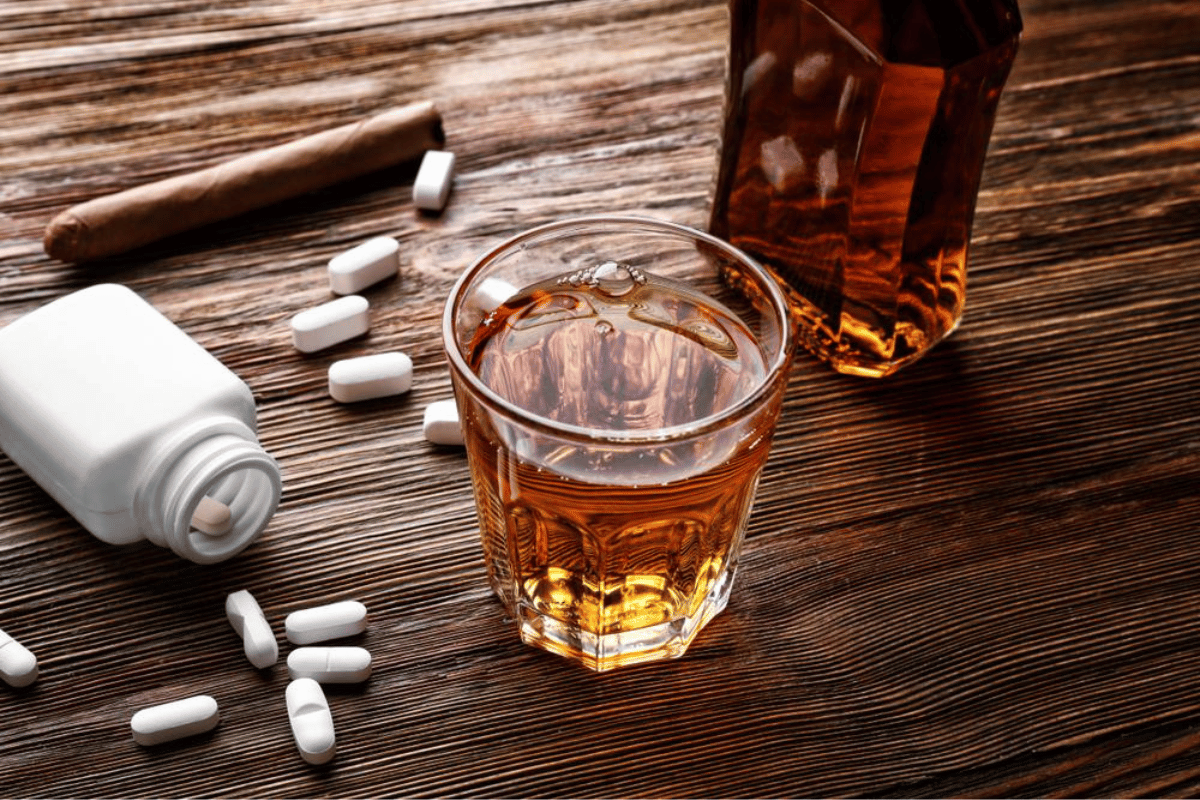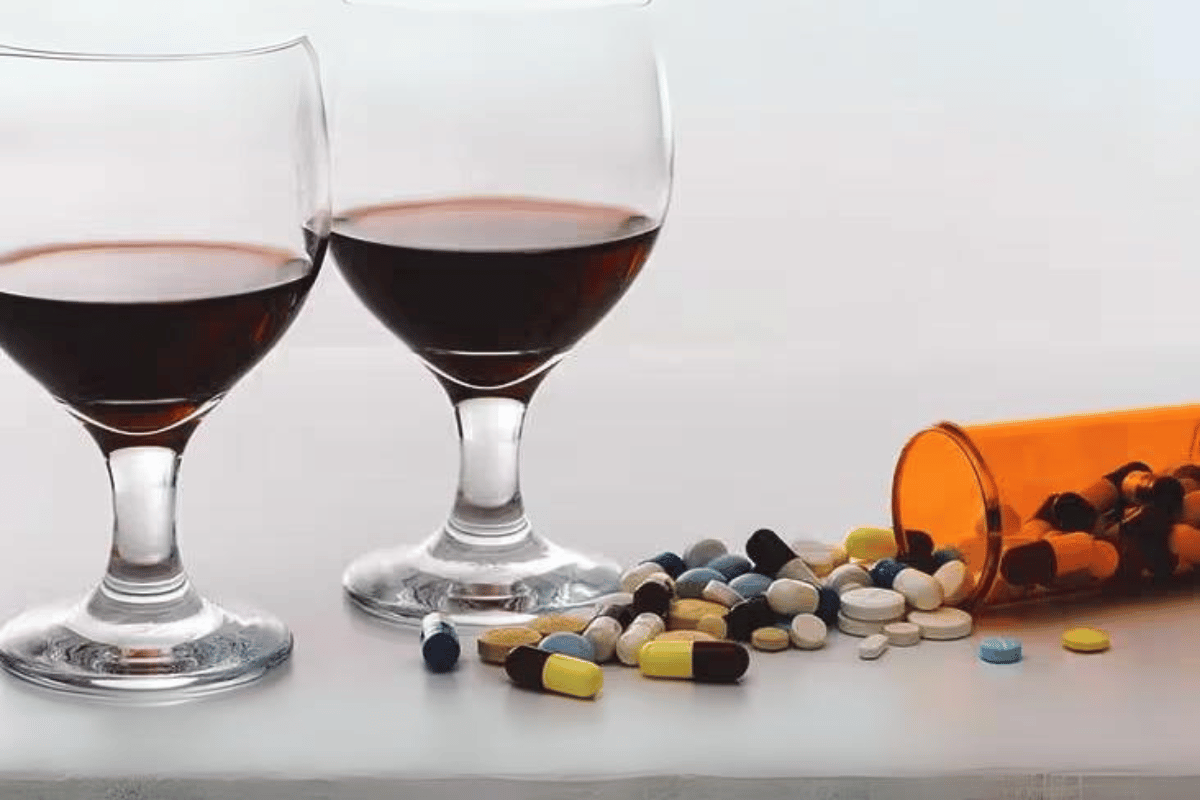At any given point in time if you are attempting to get fit and beginning to develop an exercise regime, your body care choices will have a direct bearing on the anticipated outcomes of exercise programmes, and the types of muscle relaxers that you take or the amount of alcohol you consume will make a substantial difference. This article examines the complex interplay of the muscle relaxer and alcohol factors and their joint contribution to both exercise performance and the fitness benefits that result from them.
From the perspective of a human who enjoys physical exercise and wants to maintain or develop physical fitness, knowing how either muscle relaxers and alcohol are typically used and perceived, and how together they affect the experience of physical activity, might be useful. Muscle relaxers can be prescribed to alleviate muscle tension and spasms, which might facilitate physical recovery from exertion. Muscle relaxants are administered, among other symptoms and conditions, for anxiety, low back pain, osteoarthritis and other issues. This might make have it appear as a go-to solution when it comes to the experience of physical exertion. However, alcohol can both enhance and worsen its motion effects.
Here we’ll consider the different and shared effects these drugs have on exercise performance, the recovery of tired muscles, and overall fitness. We’ll also provide the info fitness enthusiasts need to make an informed decision about whether or not to pop a couple of muscle relaxers or have a cocktail before putting in work at the gym. We’ll start by examining the roles and risks of muscle relaxers as they relate to fitness.

Understanding the Effects of Muscle Relaxers on Fitness
Muscle relaxers are a group of medicines commonly prescribed for muscle spasms and severe muscle aches. They are also occasionally used off-label by athletes and lifters in the fitness world to help manage muscle pain associated with pushing the limits of bodily tissue. The rationale for using muscle relaxers for recovery and performance maintenance in the fitness setting is understandable, however, they might contribute to the overall health of lifters, but they can also cause many other undesirable problems.
A major benefit of muscle relaxers is that they help reduce muscle tension and tightness and can help you get back to your fitness activities faster. This can be useful after a workout that leaves your muscles sore or if you have a muscle injury. Reducing muscle pain gives you more flexibility and range of motion, which are two important components of optimal exercise performance.
Yet the side effects of muscle relaxers – including drowsiness, dizziness and general impairment of motor coordination – might not be worth it. Many of these drugs also result in lessened perception of muscle fatigue and pain, so distracted workers might engage in hefting heavy objects without realising that they’ve already overexerted themselves. As with weightlifting, easing discomfort with painkillers might tempt people to push their bodies too hard, injury risk be damned.
Furthermore, muscle relaxers could hold back muscle growth and repair mechanisms. By blunting sensations of discomfort, such as muscular pain, that are important for knowing when to stop exerting, the medication may prevent you from realising the thresholds for cessation, leading to a gradual reduction in muscle repair and growth.
Overall, although muscle relaxers might offer some immediate benefits in terms of muscle pain relief and flexibility, long-term muscle conditioning and fitness training goals must be taken into account in treating pain with medication. These benefits must be weighed against setbacks in muscle conditioning and recovery capability once their use is discontinued.
Exploring the Effects of Alcohol on Fitness
It’s well-rehearsed ground but drinking alcohol has a well-rehearsed effect on numerous aspects of your fitness and when you do regular exercise, the effects can be unkind to your performance and recovery. So, here’s an update for anyone who enjoys doing (or wants to do) physical activity and exercise. There’s really nothing good about drinking alcohol when it comes to performance.
The main way that alcohol impairs fitness is that it interferes with recovery from workouts. This is because alcohol disrupts the normal rehydration process and delays or limits muscular repair and recovery – both of which are a critically important components of muscle growth and repair. You see, alcohol dehydrates you and dehydration reduces the efficiency of your muscles by making them smaller and less responsive to signals. Being dehydrated also increases your risk of cramping and more serious injuries during physical activity. Plus, alcohol makes you urinate more, which is a fancy way of saying that it increases the rate at which you lose fluids – including electrolytes – that are essential to your muscles’ function.
Furthermore, alcohol can negatively affect muscle hypertrophy by inhibiting protein synthesis in the muscles, critical for muscle repair and growth. Chronic alcohol consumption not only promotes muscle catabolism but also causes loss of muscle mass and strength, which lowers the benefits of hard training and physical activities.
And it’s not just that drinking alcohol inhibits muscle recovery and growth. Alcohol affects reaction times, coordination and the ability to perform, so drinking before or after an exercise session could interfere with basic decision-making and judgement too. Drinking alcohol before, during or after a workout can lead to poor decision-making, slower reaction times and poor decision-making, all of which could impair performance and lead to accidents or injuries during workouts.
In conclusion, though the occasional modest amount of alcohol is unlikely to derail fitness goals completely, repeated or heightened drinking can be a substantial barrier to training. Those who approach diet and exercise with ‘nutritional loves’ in mind are encouraged to take these effects into consideration when devising optimally fit programmes.

Interaction Between Muscle Relaxers and Alcohol in Fitness
Because muscle relaxers and booze share some effects on the body, interacting with them for fitness might produce complex results that vastly affect the response of the body to perform and recover from exercise. If you are one of those guys who use both muscle relaxers and booze to have some fun in the gym, you might find this information helpful.
One of the possible dangers of using muscle relaxers and alcohol together is enhanced sedative effects that can cause severe impairments to motor coordination and reaction time. This impacts exercising in particular, when decreased alertness from both substances can result in an accident or injury. Muscle relaxers and alcohol each cause and influence the same effects – drowsiness; when mixed together, these are increased and pose additional safety risks when exercising.
Moreover, concurrent use of muscle relaxers and alcohol can both affect the metabolism and the effectiveness of each substance, which can unpredictably increase their effects. For example, relaxing muscles for an extended period can interfere with workout success, while prolonged alcohol impairment can negatively affect the course of recovery, ultimately impacting all fitness goals.
Furthermore, muscle relaxers are also notoriously dehydrating, as are alcoholic beverages. Taken in tandem, they not only accompany an already heightened risk of dehydration, but they can also compound it, all of which can further hinder the body’s capacity to heal and recover following physical activity by impeding the fluid and nutrient replenishment that’s requisite for restorative external sources of hydration and nutrition that muscles and ligaments rely on for repair. Not only can dehydration also limit the body’s functional capabilities, such as muscle functioning, endurance and exercise-based injuries (including muscle cramps, blisters, etc); however, it can also increase the likelihood of accidents and misjudgements while driving, too.
Simply put, its use might be tolerable to help manage pain and to become socially relaxed, but in the context of training, they combine synergistically to create greater opportunities for harm. Folks taking muscle relaxers and drinking alcohol together must be aware of these risks and aim to either shift to safer alternatives or amend their habits around their exercise schedules.
Risks and Considerations for Fitness Enthusiasts
Anyone planning to train while taking muscle relaxers or alcohol must take into consideration the serious risks involved with this practice. This section will provide the most crucial factors to consider and provide guidance for proper management of these risks while achieving health and fitness goals.
The biggest potential risk with using muscle relaxers and alcohol at the gym is an increased likelihood of injury. Reasoning and coordination are often the most important factors at play when exercising, as they help with everything from choosing the right exercise methods and pace to challenging your body in a safe way.
Furthermore, since muscle relaxers and alcohol diminish pain signals that are important barometers of potential injury or strain, violence sufferers can spend a great deal of time unaware of injuries, reinjuring them rather than giving them time to heal, or ignoring them because they don’t feel the typical, familiar sensations of pain.
In a broader sense of long-term future health, regular alcohol ingestion and muscle relaxer use inhibit what the body does naturally and normally when you are fit and stick to a programme. Alcohol lowers protein synthesis, which is important for increasing muscle size (which ultimately increases muscle strength). Muscle relaxers also slow muscle recovery and healing of damaged tissues, as well as increasing overall recovery from physical and mental stress. All of these factors have a deleterious effect on the attainment of improved muscle strength and fitness level.
You should definitely think about it if you take your fitness and health seriously, and are looking for natural alternatives to muscle relaxation and pain medications. Targeted stretching, regular massage therapy sessions and adequate hydration are useful natural remedies for muscle tension, promoting recovery without the adverse effects of muscle relaxers and alcohol.
Overall, muscle relaxants and drinking alcohol can provide relief or social benefits, despite the short-term risk. Individuals who aspire to fitness should prioritise better informing themselves of these risks and seek advice for making better choices for themselves among the offered options. The author urges caution in the use of decongestants due to its side effects and optimal usage, and suggests caution with use of these muscle relaxants.

Conclusion
To sum up, the fact that muscle relaxers and alcohol affect fitness in complex ways means that taking these drugs can decrease exercise performance and harm your body in subtle, often under-considered ways. As we have seen, muscle relaxers can relieve muscle pains but also lead to the risk of overuse injuries and interfere with the recovery process. Alcohol can be pleasurable socially but it also can wreak havoc on muscle recovery, hydration and exercise performance.
These enduring effects are especially important for fitness devotees and health-focused individuals to know because mixing muscle relaxers and alcohol with exercise efforts can diminish the efficacy of working out and also heighten injury and long-term health risks.
Given the significant fitness implications of their use, it is important to consider your options correctly and proceed with caution. Consult your health care provider for personalised recommendations that are informed by your health history, online recommendations and product formulations that differ for each individual. Such medications can be safer and more effective at helping you manage muscle relaxation and recovery.
FAQs: Understanding Muscle Relaxers and Alcohol in Fitness
1. Can muscle relaxers help improve exercise performance?
Due to their ability to relax the muscle and reduce muscle pain, muscle relaxers may appear like a good option for improving exercise performance. Unfortunately, side-effects of muscle relaxers like drowsiness and decreased motor coordination can increase the risk of unsafe and ineffective workouts.
2. What are the risks of consuming alcohol in relation to fitness?
The consumption of alcohol can negatively affect fitness levels by increasing dehydration, decreasing muscle recovery and reducing the rate of protein synthesis that makes our muscles grow, as well as lowering coordination and reaction time and therefore our performance in an activity, making us more prone to injury.
3. Is it safe to combine muscle relaxers and alcohol when exercising?
When exercising, it’s also ill-advised to use muscle relaxers with alcohol, since the combination can boost sedative effects, compromise judgment, and increase dehydration, all of which raise injury risk and diminish exercise gains.
4. What other ways are there, other than muscle relaxers or alcohol, to eliminate tension and reduce pain?
Related options include dilligent stretching, massage therapy, proper hydration and the use of heat, which – unlike muscle relaxers and alcohol – can help to relax and relieve muscle pain without the accompanying side-effects.
5. How do muscle relaxers and alcohol affect long-term fitness goals?
Due to this muscle ‘unrelaxing’ effect, long-term muscle relaxer or alcohol use can slow (or even stop) your progress toward fitness goals. Over time, it can damage the rate at which your muscles recover from exercise thereby also slowing (or even stopping) your capacity to build muscle and gain strength.
6. What should I do if I’m considering using muscle relaxers for fitness purposes?
If you’re thinking about taking muscle relaxers for training, instead of if your back hurts, ask your doctor for advice. Your doctor will have a much better idea of what risks you are allowed to take and what your diet, exercise and relaxation tactics need to look like in the long run.
